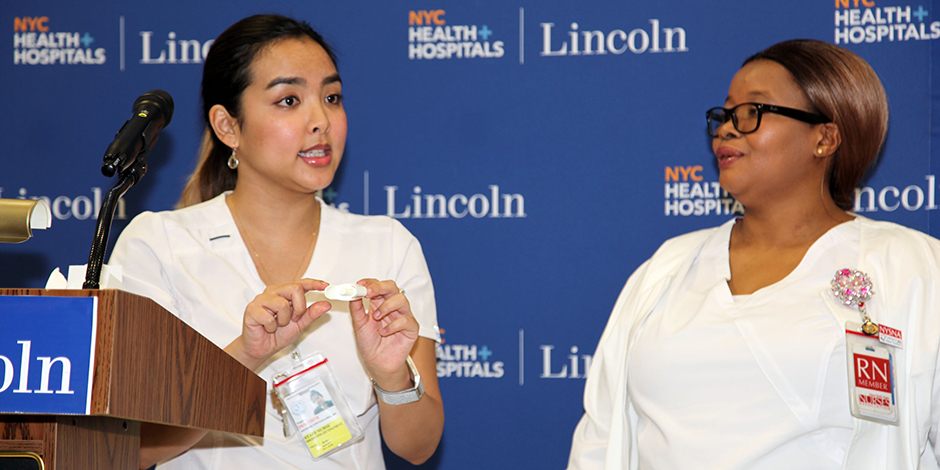NYC Health + Hospitals/Lincoln Distributed 1,084 Live-Saving Naloxone Kits
Feb 01, 2019

NYC Health + Hospitals/Lincoln announced today that it has distributed 1,084 naloxone kits to members of the community since February 2018. In addition, 859 people have received training in how to identify an overdose and how to administer naloxone.
Naloxone is a drug used to prevent an overdose of opioids, such as heroin, morphine, and oxycodone, by reversing the toxic effects of the drug. The medication is administered using a nasal spray, when someone is showing signs of opioid overdose, which includes when a person is unresponsive, breathing slows or stops, or lips and/or fingernails turn blue, pale, or gray.
“It’s gratifying to know that our naloxone distribution has gained traction in the community,” said Milton Nuñez, chief executive officer of NYC Health + Hospitals/Lincoln. “Every kit that is in a community member’s hands has the potential to save another life from opioid overdose. It’s just one of the many tools we are using to battle this epidemic here in the Bronx.”
“The de Blasio administration’s programs to increase access to naloxone are saving lives,” said Assembly Health Committee Chair Richard N. Gottfried. “Naloxone is safe, easy to administer, and effective. I commend Health + Hospitals for its naloxone distribution, education, and training programs both in the Bronx and throughout the City.”
The naloxone kit distribution center at NYC Health + Hospitals/Lincoln was launched in February 2018 to address the epidemic of opioid overdoses in the South Bronx.
Naloxone kits and training are provided on Tuesdays and Thursdays from 8:30 am to 4:00 pm in ExpressCare at NYC Health + Hospitals/Lincoln (at 234 East 149th Street in the Bronx). The kits are available—free of charge and without a prescription—to anyone 12 and older. No appointment is necessary. Everyone who receives a kit is trained by hospital staff, which takes approximately 3-5 minutes.